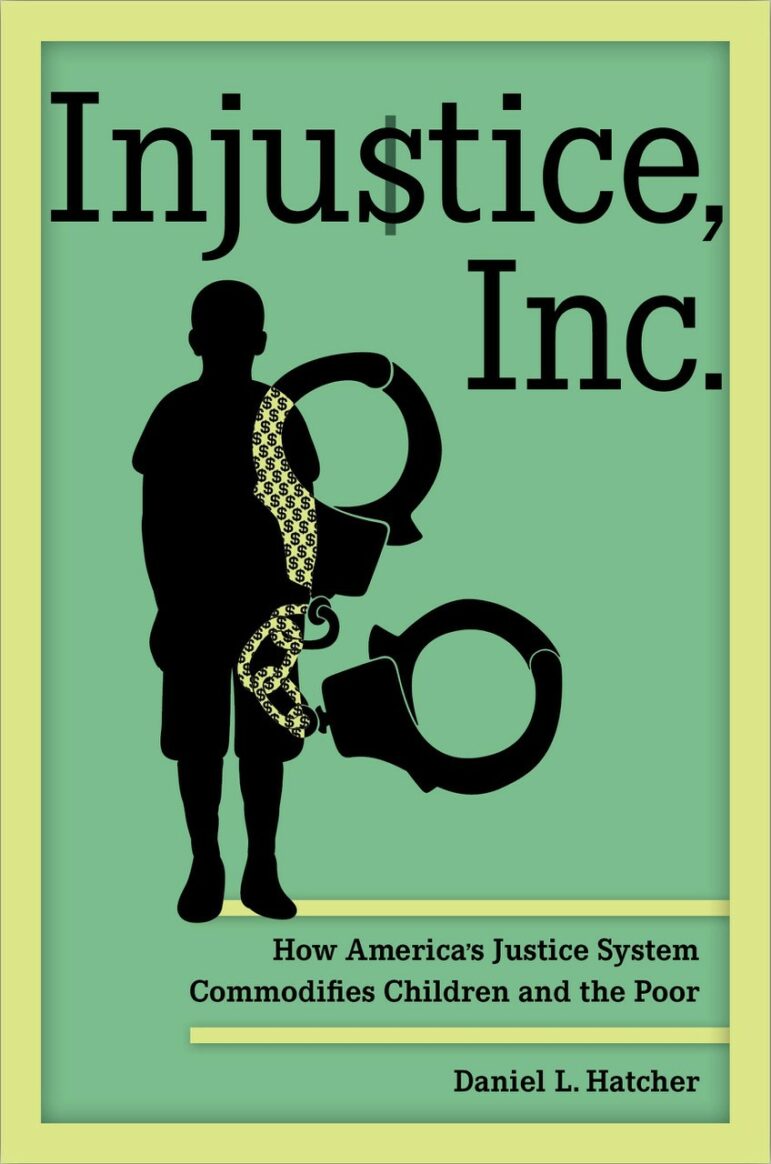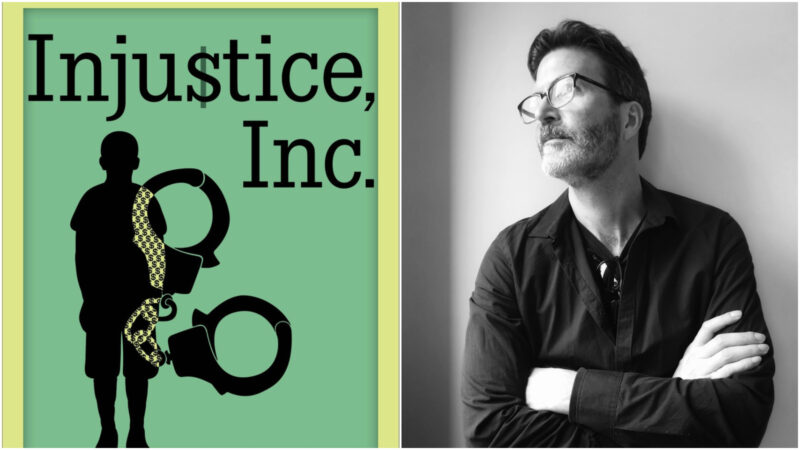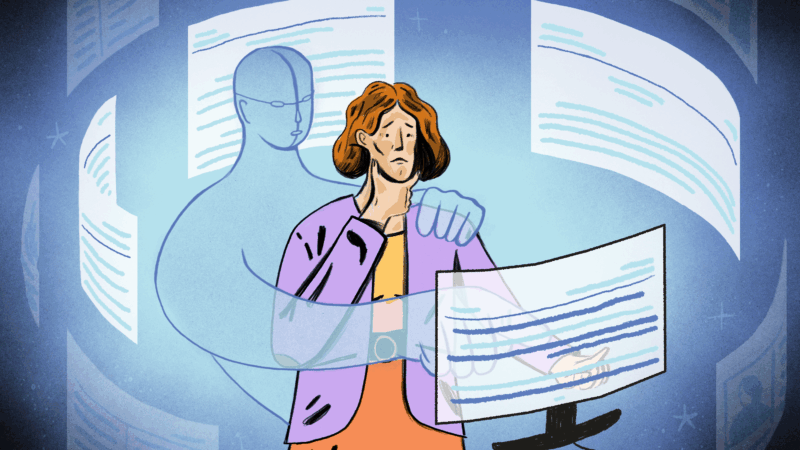‘Injustice, Inc.’ uncovers how some in the legal system use poor families to get rich
Daniel L. Hatcher’s “Injustice, Inc.” looks at the various, contractual ways that courts, prosecutors, police and probation officers take advantage of the juvenile justice system to earn money at the expense of the poor, and often Black, people caught in the middle of it.
When a child enters the U.S. juvenile justice system, it can result in thousands of dollars in revenue for state agencies.
A new book, “Injustice, Inc.,” looks at the various contractual ways that courts, prosecutors, police and probation officers take advantage of this system to earn money at the expense of the poor, and often Black, people caught in the middle of it. It details how juvenile courts push children into foster care and prosecutors pursue families for court fines and fees.
Professor and attorney Daniel L. Hatcher is the author of the book, which was released on Tuesday. In a conversation with the Gulf States Newsroom’s Bobbi-Jeanne Misick, Hatcher discusses the findings in his book, how his work as a legal aid informs his work and more.
The following conversation has been edited and condensed for clarity.

Your work is focused on how state government agencies profit off of the vulnerable. Your first book, “The Poverty Industry,” looked at human services agencies making money off of poor people, and this one digs into the justice system. What led you to this focus?
As I continue to engage in both litigation and research for my scholarship, I found that every part of our justice system — our juvenile courts, our family courts, criminal courts, our probation departments, policing agencies, our prosecutor offices, detention facilities and jails — are all engaged in these various contractual revenue schemes to generate revenue from the vulnerable populations they’re supposed to serve.
You mentioned in the book the racial implications of this. Could briefly break down what you found and why, or why not, that’s surprising?
Of the revenue mechanisms that I uncover and write about in the book, it’s not just that they’re causing harm to the individuals pulled in, but it’s causing disproportionate harm based on income and race. If you look at this, one of the parishes in Louisiana — Jefferson Parish — indicated that Black youth are overrepresented at every contact point with the juvenile justice system. Even though Black youth made up about 30-33% of the population, they represented almost 70% of all youth referred to the juvenile court. Those numbers, those statistics, are what you see across the country — just devastating disproportionate harm and disproportionate treatment against families and children of color.
You were a legal aid attorney for some years. How does your former work in that area color your research and your work on these books?
Well, I’ve been an advocate and attorney for children and low-income individuals for over 25 years. My past work, my very first job as legal aid, was representing hundreds of foster children pulled into the broken Baltimore foster care system. That experience both overwhelmed me, but also inspires me. I can’t forget it, I can’t shake what I saw, what I learned, and I still feel driven in my research and my advocacy to try to help. When I encounter systemic failings in the systems and the institutions of justice and welfare that are again supposed to serve these children, when I find out that they’re, instead, using these children as a revenue source, I feel driven to uncover that.

One other money-generating entity is these private prisons. In Louisiana, where I live, a lot of them have become immigration detention centers. I’m interested in your concept of what the implications of the private prison company managing minors are.
Well, it’s hugely concerning when you have a profit motive to detain and incarcerate children and that privatized focus becomes part of a business. Sometimes it starts with a small company that starts either a detention facility or a residential treatment center — that sounds better, but it’s still detaining children. But I’m also concerned not just with the use of private companies. Some nonprofits are engaged in the same process and some of the government-run facilities, they’re increasingly running like a business.
Are you seeing any effort to pull back and build a justice system that isn’t focused on cost over care?
There has been some improvement in some jurisdictions, [but] not nearly enough. But we have to have hope, we have to keep trying. Justice, as I write about in the book, is ideal. And us humans, we’re flawed, right? So, we might not ever be able to detain the pure ideal of equal and impartial justice, but we have to keep striving for that. We in the justice system, that’s our entire reason for existing — to serve equal justice. We have to keep striving, we have to keep looking inwards to improve ourselves as individual parts of the system and the systems in which we work, and it just couldn’t be more crucial to do that.
Daniel L. Hatcher is the author of the book, Injustice, Inc. How America’s Justice System Commodifies Children and the Poor.
This story was produced by the Gulf States Newsroom, a collaboration among Mississippi Public Broadcasting, WBHM in Alabama and WWNO and WRKF in Louisiana and NPR.
Scientists make a pocket-sized AI brain with help from monkey neurons
A new study suggests AI systems could be a lot more efficient. Researchers were able to shrink an AI vision model to 1/1000th of its original size.
U.S. evacuates diplomats, shuts down some embassies as war enters fourth day
The United States evacuated diplomats across the Middle East and shut down some embassies as war with Iran intensified Tuesday while President Trump signaled the conflict could turn into extended war.
North Carolina and Texas have primary elections Tuesday. Here’s what you need to know
The midterm elections are officially underway and contests in Texas and North Carolina will be the first major opportunity for parties to hear from voters about what's important to them in 2026.
Trump promised the MAGA base no new wars. Then he went to war with Iran
President Trump promised his "Make America Great Again" voters an "America First" foreign policy. With the war in Iran, he's testing MAGA world's willingness to be flexible on one of its core beliefs.
Kristi Noem set to face senators over DHS shutdown, immigration enforcement
The focus of the hearing is likely to be on how Kristi Noem is pursuing President Trump's mass deportation efforts in his second term, after two U.S. citizens were killed by immigration officers.
College students, professors are making their own AI rules. They don’t always agree
More than three years after ChatGPT debuted, AI has become a part of everyday life — and professors and students are still figuring out how or if they should use it.








